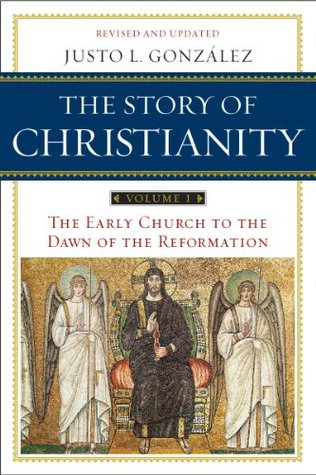More on this book
Community
Kindle Notes & Highlights
Read between
December 26, 2019 - January 12, 2020
The first of these is that, while this narrative is the history of the deeds of the Spirit, it is the history of those deeds through sinners such as we are.
The notion that we read the New Testament exactly as the early Christians did, without any weight of tradition coloring our interpretation, is an illusion. It is also a dangerous illusion, for it tends to absolutize our interpretation, confusing it with the Word of God.
History is not the pure past; history is a past interpreted from the present of the historian.
Diaspora Judaism is of crucial importance for the history of Christianity, for it was one of the main avenues through which the new faith expanded throughout the Roman Empire.
Some even claimed that Christians worshiped an ass. This was an old rumor about Judaism that was now extended to include Christians, and make them an object of mockery. Illustrating this, a graffito has been found in which a man with the head of an ass is crucified, while another looks at him in adoration. The inscription reads, “Alexamenos worships God.”
The word catholic means “universal,” but it also means “according to the whole.”
To separate itself from the various heretical groups and sects, the ancient church began calling itself “Catholic.” This title underscored both its universality and the inclusiveness of the witness on which it stood. It was the church “according to the whole,” that is, according to the total witness of all the apostles and all the evangelists. The various Gnostic groups were not “Catholic” because they could not claim this broad foundation.
This was the warranty of the church’s orthodoxy, and this was the reason why “Catholic” eventually became a synonym for orthodox or “correct teaching.” Ironically, through an evolution that took centuries, debates regarding the true meaning of catholic came to be centered on the person and authority of a single apostle—Peter.


